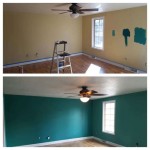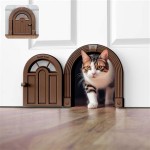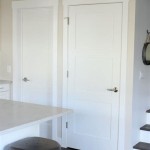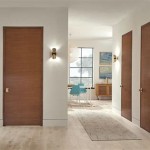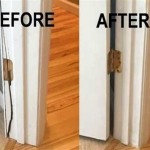Questions to Ask an Interior Designer About Their Job Description
Engaging an interior designer can be a significant undertaking, representing both a financial investment and a commitment to transforming a living or work space. To ensure a successful and satisfying collaboration, it is crucial to thoroughly vet potential candidates. This involves more than just reviewing portfolios; it requires a comprehensive understanding of their professional capabilities, design philosophy, and approach to client relationships. Asking pointed questions about their job description, responsibilities, and working methodologies is essential for determining if a specific designer is the right fit for a particular project.
The interior design field is multifaceted, encompassing a range of specializations and levels of experience. Some designers focus on residential projects, while others specialize in commercial or hospitality spaces. Furthermore, some may concentrate on specific aspects of design, such as space planning, lighting design, or sustainable materials. Therefore, understanding a designer's core competencies and areas of expertise is paramount. The following questions are designed to elicit valuable information that will aid in the selection process.
Understanding Their Core Responsibilities and Project Management Approach
One of the primary considerations when hiring an interior designer is understanding their scope of responsibilities and how they manage projects from inception to completion. This involves delving into their process, communication protocols, and strategies for handling potential challenges. A clear understanding of these aspects will provide insights into their organizational skills, problem-solving abilities, and commitment to client satisfaction.
A key question to ask is: "Could you walk me through your typical project workflow, from the initial consultation to the final installation?" This question encourages the designer to outline their process in detail, revealing their approach to each phase of the project. Their response should ideally address aspects such as initial client meetings, needs assessment, conceptual design, budget development, material selection, contractor coordination, and project execution. Pay close attention to how they describe communication with clients and their strategies for incorporating feedback.
Inquire about their experience with budget management. "How do you ensure a project stays within budget?" This probes their ability to accurately estimate costs, track expenses, and proactively address potential overruns. A responsible designer will have established procedures for managing budgets, including contingency planning and transparent communication regarding any necessary adjustments.
Furthermore, it is crucial to understand how they handle unforeseen challenges. "Can you provide an example of a challenging project you've worked on and how you overcame the obstacles?" This question allows the designer to showcase their problem-solving skills and resilience in the face of adversity. Their response should demonstrate their ability to think creatively, adapt to changing circumstances, and maintain a positive attitude throughout the project.
Also, it is essential to ascertain their approach to contractor management. "How do you select and manage contractors for your projects?" This explores their vetting process for contractors, their methods for ensuring quality workmanship, and their strategies for resolving any potential conflicts or delays. A well-established designer will have a network of reliable contractors and a clear understanding of construction management principles.
Finally, addressing the issue of project timelines is crucial. "How do you develop and manage project timelines, and what factors typically affect project completion dates?" This helps to understand their ability to realistically estimate project durations, identify potential bottlenecks, and implement strategies to keep the project on track. A transparent and proactive approach to timeline management is indicative of a well-organized and reliable designer.
Exploring Their Design Philosophy and Creative Process
Beyond project management skills, understanding a designer's aesthetic philosophy and creative process is critical. Their design sensibility should align with the client's preferences and the intended purpose of the space. Exploring their sources of inspiration, their approach to incorporating client input, and their understanding of design principles will provide valuable insights into their creative capabilities.
A fundamental question is: "How would you describe your design style or philosophy?" This allows the designer to articulate their unique perspective and approach to design. Their response should reveal their core values, their influences, and their commitment to creating functional and aesthetically pleasing spaces. Look for a style that resonates with your own preferences and vision for the project.
Inquire about their sources of inspiration. "Where do you draw inspiration for your designs?" This explores the designer's creative influences and their methods for staying current with design trends. Their inspiration may come from a variety of sources, such as art, architecture, nature, or travel. Understanding their sources of inspiration will provide insights into their aesthetic sensibilities and their ability to create innovative designs.
It is also essential to understand their approach to incorporating client input. "How do you incorporate client feedback and preferences into your designs?" This probes their ability to listen attentively, understand client needs, and translate those needs into tangible design solutions. A successful designer will be able to balance their own creative vision with the client's desires, creating a space that is both aesthetically pleasing and functional.
Furthermore, ask about their knowledge of design principles. "Can you explain your understanding of key design principles, such as proportion, balance, and color theory?" This assesses their foundational knowledge of design principles and their ability to apply those principles effectively. A well-versed designer will be able to articulate their understanding of these principles and demonstrate how they are used to create visually appealing and harmonious spaces.
Finally, it is beneficial to explore their approach to sustainable design. "Do you have experience with sustainable design practices and materials?" This assesses their commitment to environmentally responsible design and their knowledge of sustainable materials and construction techniques. As sustainability becomes increasingly important, choosing a designer with expertise in this area can add significant value to the project.
Assessing Their Communication Skills and Client Relationship Management
Effective communication is the cornerstone of a successful client-designer relationship. A designer's ability to clearly articulate their ideas, actively listen to client concerns, and provide timely updates is essential for building trust and ensuring a smooth project execution. Assessing their communication skills and approach to client relationship management is therefore crucial.
Start by directly asking: "How do you typically communicate with clients throughout the project?" This question encourages the designer to describe their communication protocols, including frequency of updates, preferred methods of communication (e.g., email, phone, in-person meetings), and strategies for keeping clients informed of progress. A proactive and transparent communication style is a good indicator of a reliable and client-focused designer.
It is also important to understand how they handle disagreements or conflicts. "How do you handle disagreements or conflicts that may arise during a project?" This explores their ability to navigate challenging situations, find common ground, and resolve conflicts in a professional and constructive manner. Their response should demonstrate their commitment to finding solutions that are mutually beneficial and maintain a positive working relationship.
Inquire about their process for managing client expectations. "How do you manage client expectations and ensure that they are realistic about the project's scope, timeline, and budget?" This assesses their ability to provide clear and accurate information, set realistic expectations, and proactively address any potential concerns. A transparent and honest approach to managing expectations is essential for building trust and preventing misunderstandings.
Furthermore, it is beneficial to ask for references from past clients. "Can you provide references from previous clients who I can contact?" This allows the opportunity to speak directly with past clients and gather firsthand feedback on the designer's performance, communication skills, and overall client satisfaction. Contacting references can provide valuable insights that may not be evident from a portfolio or initial interview.
Finally, it is important to assess their overall responsiveness and professionalism. Pay attention to how quickly they respond to inquiries, how clearly they articulate their ideas, and how professionally they conduct themselves during the interview process. These are all indicators of their commitment to client service and their ability to manage client relationships effectively.
By asking these comprehensive questions, clients can gain a thorough understanding of an interior designer's capabilities, design philosophy, and approach to client relationships. This will enable them to make an informed decision and select a designer who is the perfect fit for their specific project needs and aesthetic preferences, ultimately leading to a successful and rewarding design experience.

10 Questions To Ask Interior Designers Before Hiring Paige Studio Dallas Designer

8 Essential Questions To Ask When Hiring An Interior Designer Laura U Design Collective

5 Questions To Ask An Interior Designer Stone House Collective

8 Essential Questions To Ask When Hiring An Interior Designer Laura U Design Collective

Interior Designer Essential Questions Every Student Must Ask

Top 5 Questions To Ask Before Hiring Interior Designers Choosing Competent Geomatrix

Interview Questions To Ask When Hiring Interior Designers

Interior Design Questionnaire 30 Insightful Questions To Ask

8 Essential Questions To Ask When Hiring An Interior Designer Laura U Design Collective

Top 5 Questions You Should Ask An Interior Designer To Ensure A Better Output
Related Posts

